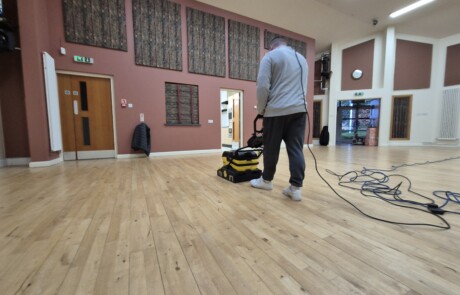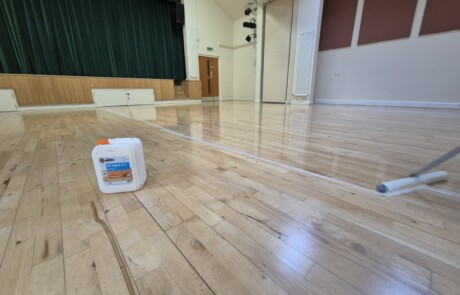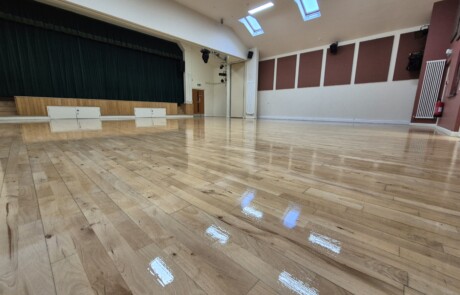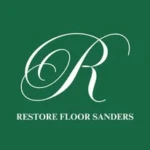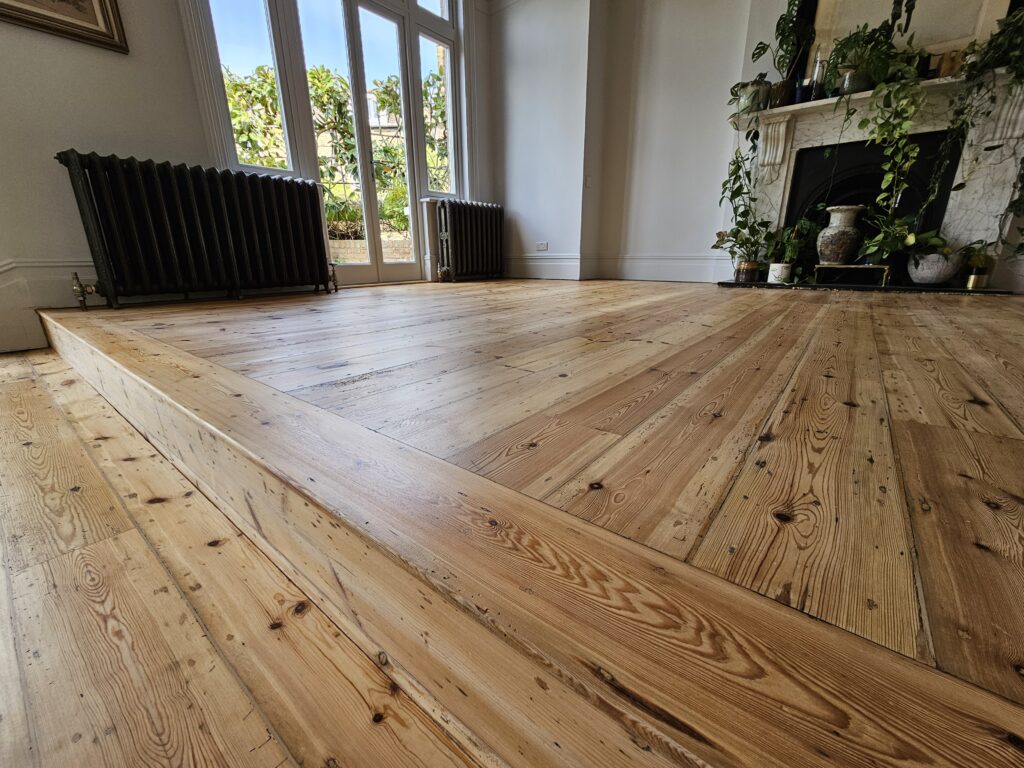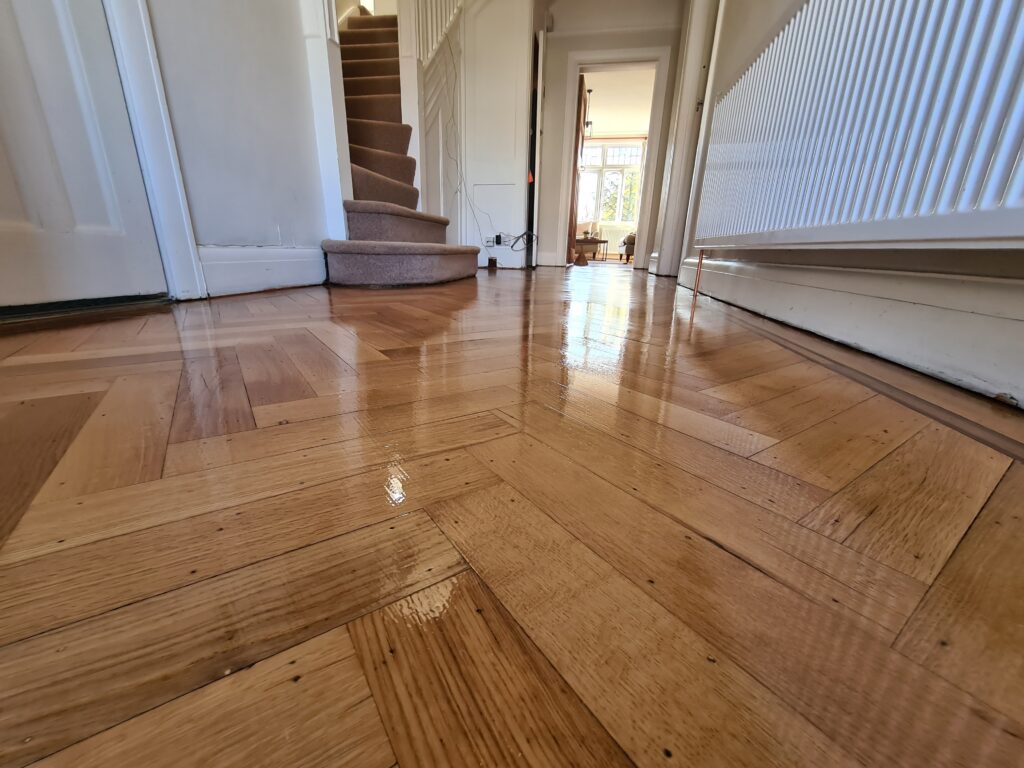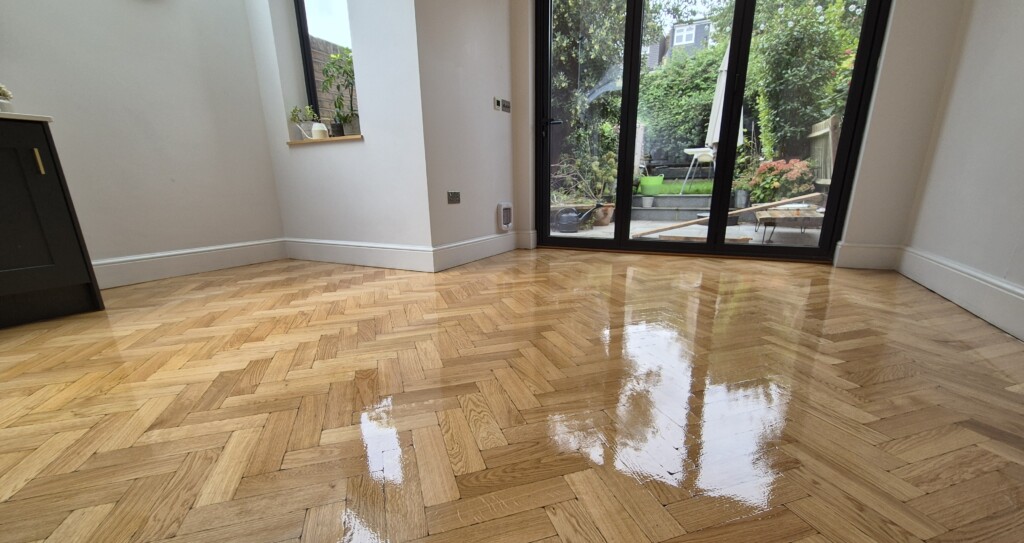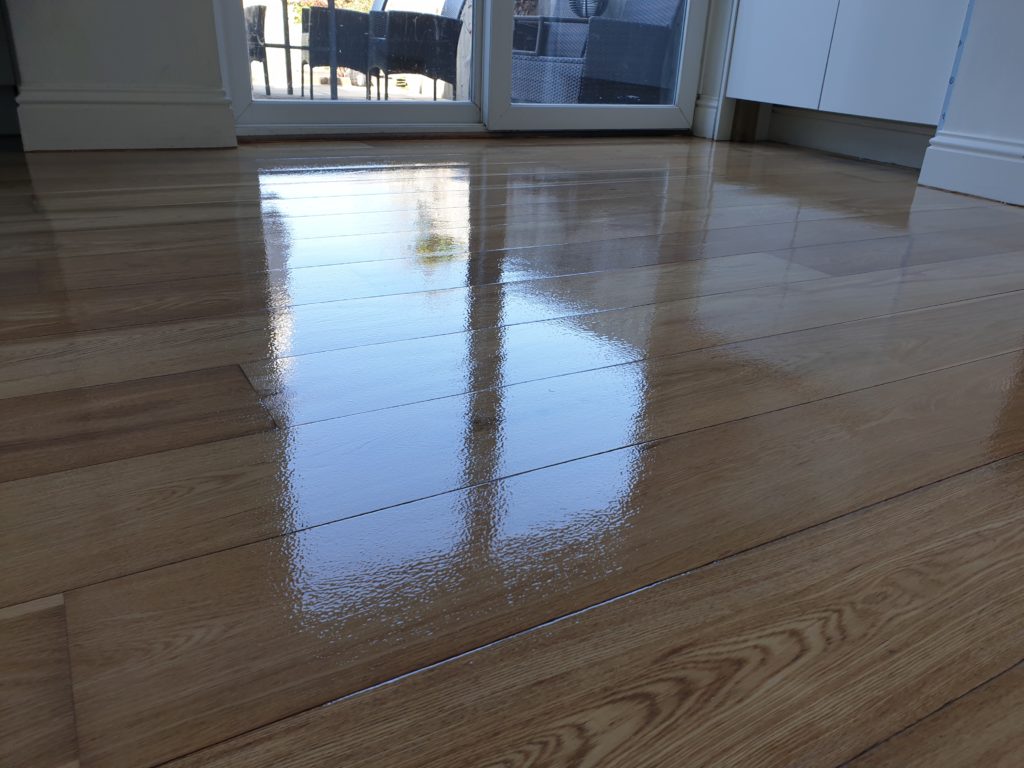Commercial Floor Sanding
Floor Sanding and finishing plays an important role in many domestic households, but the premises to which it is most integral is undoubtedly in the Commercial sector. Floor Sanding and Floor Restoration in commercial properties is much the same as domestic floor sanding, with the only difference being the finishes which are applied to the floors. Once a floor has been sanded and sealed, it will last many years before it requires sanding again, providing a yearly maintenance regime is in place.
Floor Finishing
After sanding, we finish every commercial project with 1 coat of primer and 2 good coats of a 2-part polyurethane lacquer as standard. We mainly favour Bona Traffic Hd and Loba Fusion.
After all our years sanding commercial floors, we can honestly say there is still a huge amount of satisfaction in doing so. We believe a commercial building with a stunning and perhaps most importantly, durable floor has a real positive impact on the all those who use it.
Commercial Floor
Maintenance
Our Commercial Floor Maintenance plan consists of what we call a ‘Screen & Seal’. Screen and seals are usually carried between every 1-2 years, depending on the footfall of the premises. For example, Secondary schools which will usually require this yearly. However, at a fraction of the cost of a re-sand it’s an excellent long term investment for protecting the flooring. The process involves cleaning the floors, followed using a 120 grit mesh screen to create a key. Finally we apply a fresh top coat of 2-part lacquer or Oil depending on previous finish. A well maintained floor will help to prevent damage, and if maintained regularly will not need sanding for many years.
Floor Types
We complete much of our Commercial Floor Restoration on many Beach, Maple floors and Oak Floors. All 3 have superior damage resistant properties in comparison to Softwood species, which is why they’re commonly found in Church’s, Community halls, Schools, Pubs along with many other commercial properties. Occasionally we get the opportunity to sand a Granwood floor. Granwood floors date back to the early 1900’s. They’re made from a mix of concrete, resin and wood, giving them waterproof characteristics. So it’s no surprise that Granwood floors are some of the toughest around, and are usually one of the only materials that survives in the event of a flood.


